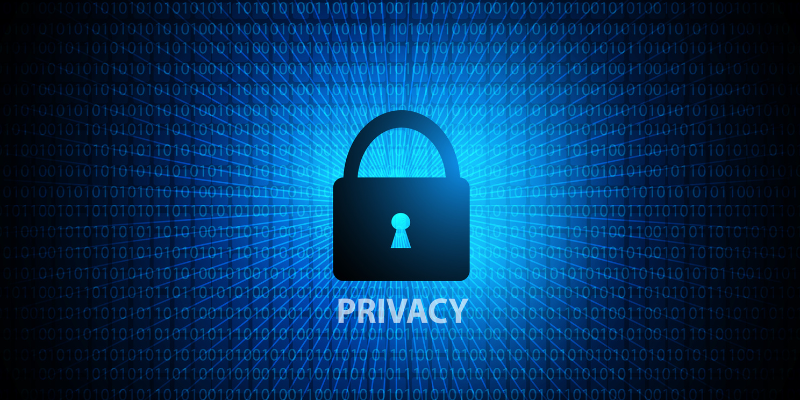In today’s digital age, where almost everything we do involves the internet, protecting our online privacy has become more critical than ever. However, many myths about internet privacy continue to confuse users, leaving them unsure about what they should be worried about and what’s merely a misconception. As a leading internet service provider in Mumbai, Jeebr Internet is committed to ensuring your online experience is not only fast but also secure. In this post, we’ll debunk some common internet privacy myths and share what you should really focus on when it comes to protecting your privacy online.
Myth 1: Incognito Mode Guarantees Privacy
Many people believe that browsing in incognito or private mode ensures complete anonymity. While it’s true that incognito mode prevents your browser from saving your history, it doesn’t mean your activity is invisible to everyone. Your Internet Service Provider (ISP) can still track your online behavior, and websites can still gather information via cookies. Incognito mode mainly prevents local tracking on your device, but it’s not foolproof against online surveillance.
What You Should Be Worried About:
Even in incognito mode, your browsing activity is still visible to your ISP, search engines, and websites you visit. To protect your privacy more effectively, consider using a Virtual Private Network (VPN) to encrypt your data and mask your IP address.
Myth 2: Public Wi-Fi is Safe with HTTPS Sites
While HTTPS encryption is essential for ensuring that the data exchanged between your browser and the website is secure, it doesn’t make public Wi-Fi entirely safe. Hackers can still exploit vulnerabilities in public networks to intercept your data. Public Wi-Fi is often unencrypted, making it easy for cybercriminals to launch man-in-the-middle attacks.
What You Should Be Worried About:
Be cautious when using public Wi-Fi, especially for sensitive transactions like banking or shopping. Use a VPN on public networks, and avoid sharing personal information unless absolutely necessary.
Myth 3: Only Big Businesses Need to Worry About Privacy
There’s a common misconception that only large corporations or organizations need to be concerned about online privacy. However, individuals are just as vulnerable to privacy breaches as companies. Cybercriminals often target individuals for personal information that can be used in identity theft or sold on the dark web.
What You Should Be Worried About:
Everyone should take internet privacy seriously. Protect your personal information by regularly updating passwords, enabling two-factor authentication, and using encrypted communication services. As a trusted ISP in Mumbai, Jeebr Internet offers security tools to safeguard your online presence.
Myth 4: Your ISP Won’t Monitor Your Data
Some people assume that their internet service provider isn’t keeping tabs on their online activity. However, ISPs can track and collect data on the websites you visit, the content you stream, and your search queries. This data may be sold to advertisers or shared with government agencies.
What You Should Be Worried About:
Your ISP has access to significant amounts of your browsing data. To limit how much your ISP knows about your internet activity, consider using a VPN service, which encrypts your connection and hides your browsing history from your ISP.
Myth 5: Deleting Cookies Means No One Can Track You
While clearing your cookies can help reduce some level of tracking, it doesn’t completely stop companies from gathering data about you. Modern tracking technologies like browser fingerprinting can still identify you without the use of cookies by analyzing information such as your device’s unique settings, browser type, and installed plugins.
What You Should Be Worried About:
Deleting cookies is a good practice, but it’s not enough on its own. To minimize tracking, use privacy-focused browsers or browser extensions that block trackers. You should also disable third-party cookies in your browser settings to reduce the likelihood of tracking across websites.
Myth 6: Social Media Privacy Settings Protect All Your Data
Many users believe that adjusting their privacy settings on social media platforms like Facebook, Instagram, or Twitter completely protects their information. While these settings control what other users can see, they don’t necessarily stop the platform itself from collecting your data and sharing it with advertisers.
What You Should Be Worried About:
Social media platforms collect vast amounts of data about their users. Be mindful of the information you share on these platforms, and regularly review your privacy settings. Consider limiting access to your personal data and be cautious when granting third-party apps access to your social media accounts.
Protecting Your Internet Privacy: What Jeebr Internet Recommends
At Jeebr Internet, we understand the importance of keeping your online activities private. As a reliable internet service provider in Mumbai, we offer secure, high-speed internet connections that allow you to browse without worrying about data breaches or online threats. Here are some steps you can take to enhance your online privacy:
Use Strong, Unique Passwords – Make sure your passwords are hard to guess and different for each account.
Enable Two-Factor Authentication – Add an extra layer of security to your accounts by enabling two-factor authentication.
Keep Your Software Updated – Regularly update your software and devices to ensure you have the latest security patches.
Consider VPN Services – Use a VPN to keep your internet activities private, even from your ISP.
Limit Personal Information Online – Be mindful of the information you share on websites, apps, and social media platforms.
Conclusion
Internet privacy myths can often lead to a false sense of security, leaving you vulnerable to data breaches, identity theft, and other online threats. By understanding what’s real and what’s myth, you can take the right steps to protect yourself. Jeebr Internet is here to provide secure, reliable internet services in Mumbai to ensure your privacy is safeguarded. Stay informed, stay safe, and always prioritize your online security.











